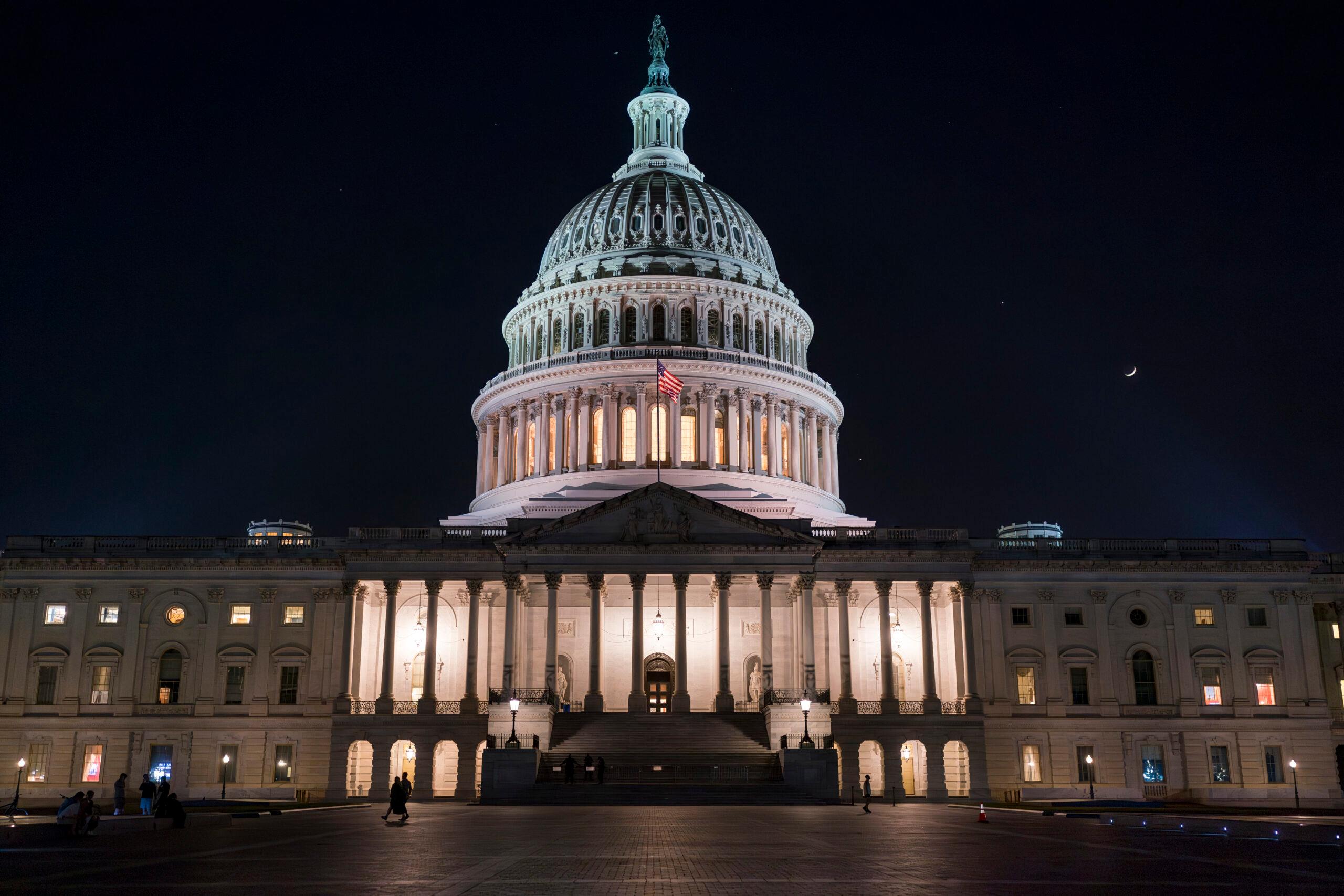
The U.S. House of Representatives passed a temporary funding measure Tuesday 336-95. putting the country on a path to avoid a government shutdown at the end of the week.
The measure was proposed by Republican Speaker Mike Johnson, but it passed with more Democratic votes than Republican.
Democratic Reps. Yadira Caraveo, Jason Crow, Diana DeGette, Joe Neguse, and Brittany Pettersen voted to keep the government open, as did GOP Rep. Doug Lamborn.
“We certainly can’t allow the government to shut down,” said Crow.
Neguse, who is part of the Democratic House leadership team, said Democrats made it clear that they wanted to find common ground and avoid a shutdown.
“The fact that Republicans put forth a bill that ultimately included none of the problematic partisan policy riders that were included in prior iterations of the bill, and the fact that it includes funding at the fiscal year 2023 levels ultimately made it palatable for me and I think most members of our caucus,” he said.
In Washington jargon, the spending bill goes by a lot of names — a laddered CR or a step stool, or a two-step CR. Whatever it’s called, the continuing resolution will keep funding going at current levels into the new year, with money for different parts of the government running out on two different dates.
Republican Reps. Lauren Boebert and Ken Buck voted against the measure.
That was not surprising. The House Freedom Caucus, of which Boebert and Buck are members, came out against the proposal early Tuesday. “The House Freedom Caucus opposes the proposed ‘clean’ Continuing Resolution’ as it contains no spending reductions, no border security, and not a single meaningful win for the American People,” the group said in a statement.
The vote outcome was similar to the last stopgap funding measure Congress passed on Sept. 30, which cost former House Speaker Kevin McCarthy the gavel.
This time around though, opponents seem to have little appetite for punishing the new speaker they struggled so long to select.
Speaker Johnson defended his proposal, saying Tuesday, “It’s a new innovation, but it’s going to change the way we’ve done this. We have broken the fever. We are not going to have a massive omnibus spending bill right before Christmas.”
He added that, with a three-seat majority, House Republicans don’t have the votes to include the policy changes some hard-right lawmakers want.
The innovation in the laddered CR is that different parts of the government would see funding run out on separate dates. Money for agencies covered by the Agriculture, Energy-Water, Military Construction-VA, and Transportation-HUD appropriations bills would only last until Jan 19, 2024, while other parts of the government, including Defense and the Interior Department, would get an additional two weeks of funding, through February 2.
The goal of this timeline is to give Congress more time to potentially pass more individual appropriations bills, as well as work on a government spending deal to avert a shutdown early next year.
Republican lawmakers have increasingly rejected other tools Congress has used previously to pass the funding bills, including huge ‘omnibuses’ that wrap up the entire budget into one giant package. But it’s unclear if the individual bills can pass. The House has so far failed to pass the agriculture-FDA funding bill, and leadership pulled two others from the floor last week when it was clear Republicans didn’t have the votes for them.
It also extends the recently expired Farm Bill through next September so emergency food aid and agriculture programs, from crop insurance to conservation, keep going.
Caraveo, who serves on the House Agriculture Committee and has been working on the next iteration of the Farm Bill, is glad of that. “We will continue to work on the baseline text and make sure that we’re coming together as both parties to ensure that nutrition services are what they need and that agriculture has what they need.”
Still, the stopgap funding measure leaves out a lot that lawmakers haven’t been able to agree on, including military aid for Ukraine and Israel, and does not include additional funding for the food aid program known as WIC (Women, Infants and Children).
And while Senate leaders also questioned the need for two different deadlines, they did signal they would pass the House bill.
Senate Majority Leader Chuck Schumer said the CR has two things Democrats pushed for: no deep program cuts and a longer time frame to work on defense spending.
“Neither [Senate Minority Leader Mitch] McConnell nor I want to shut down,” he said.









